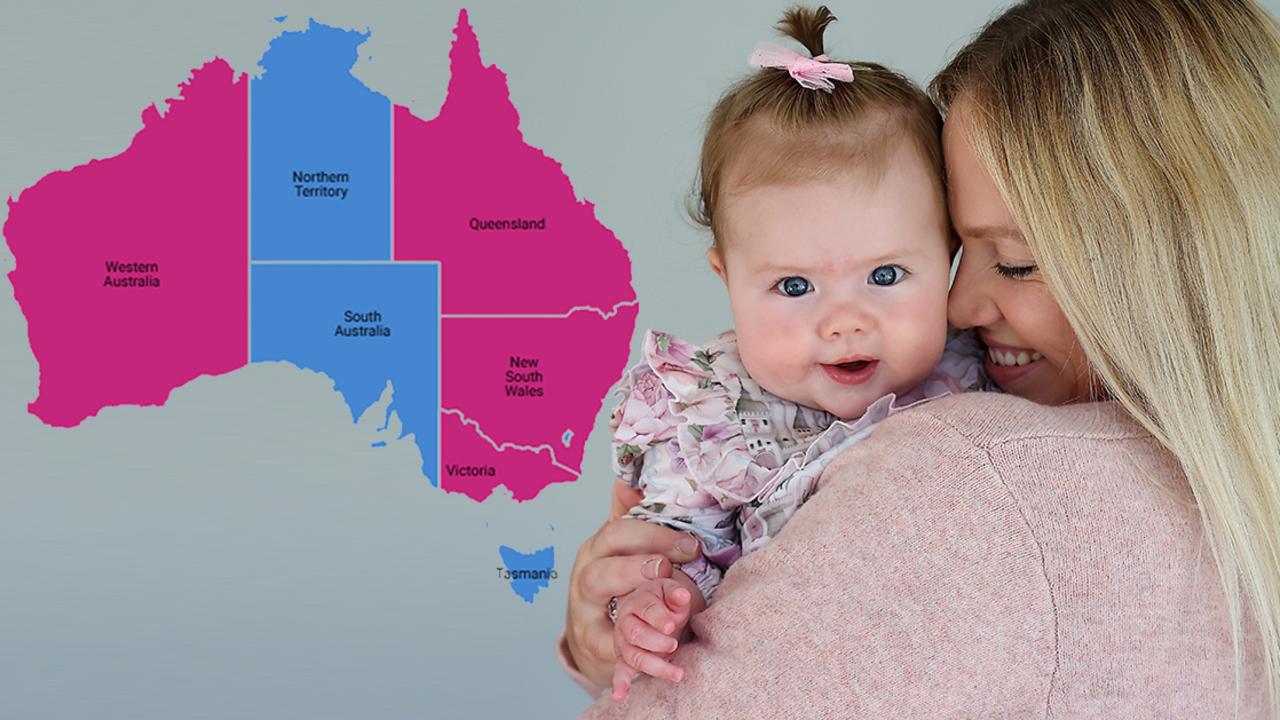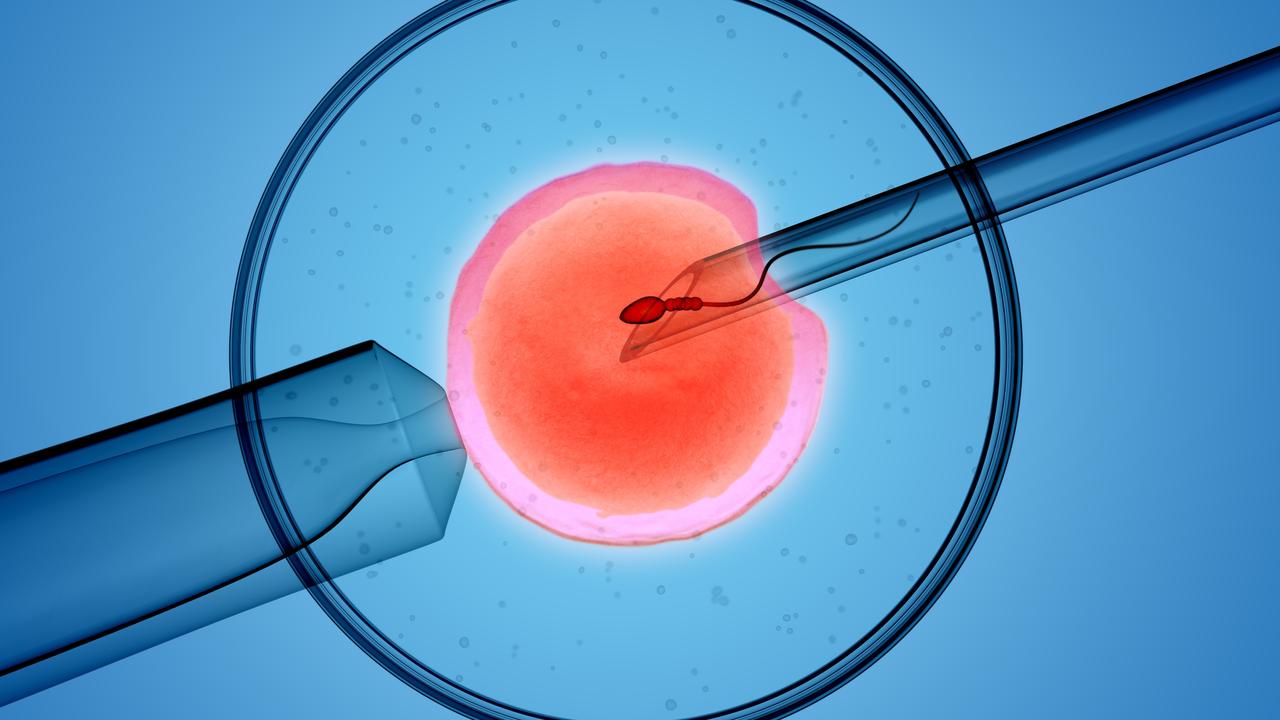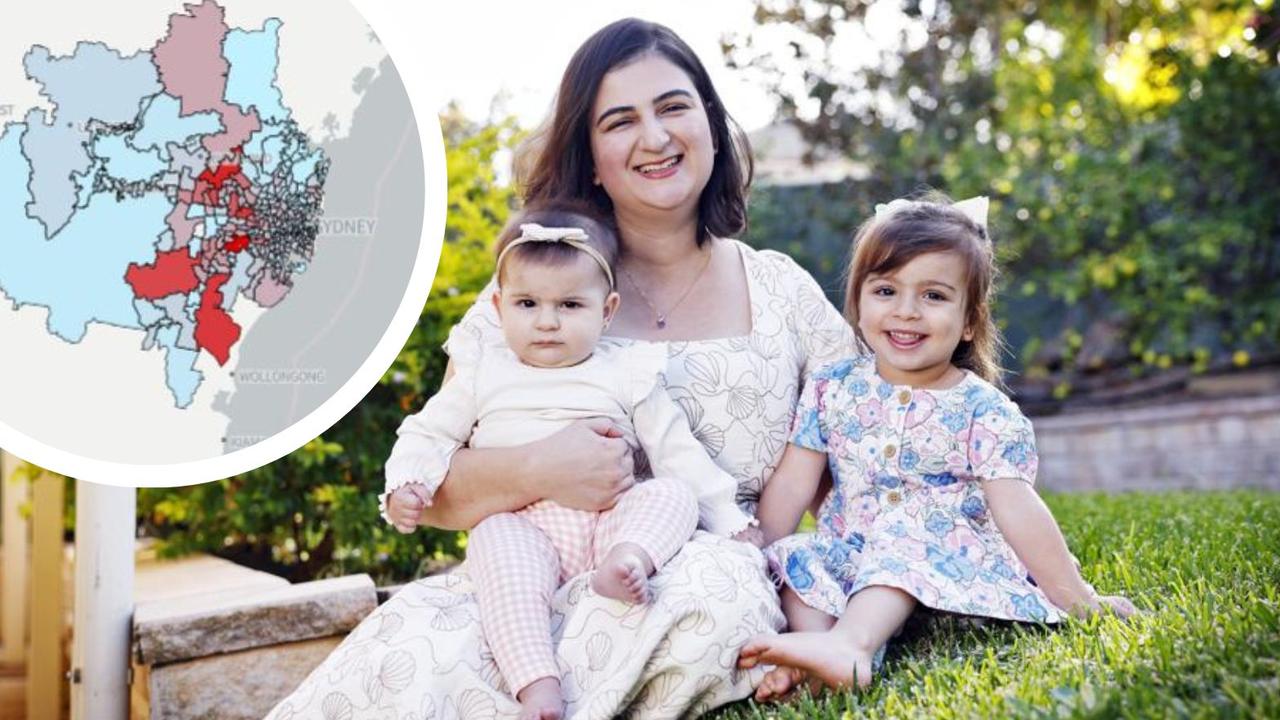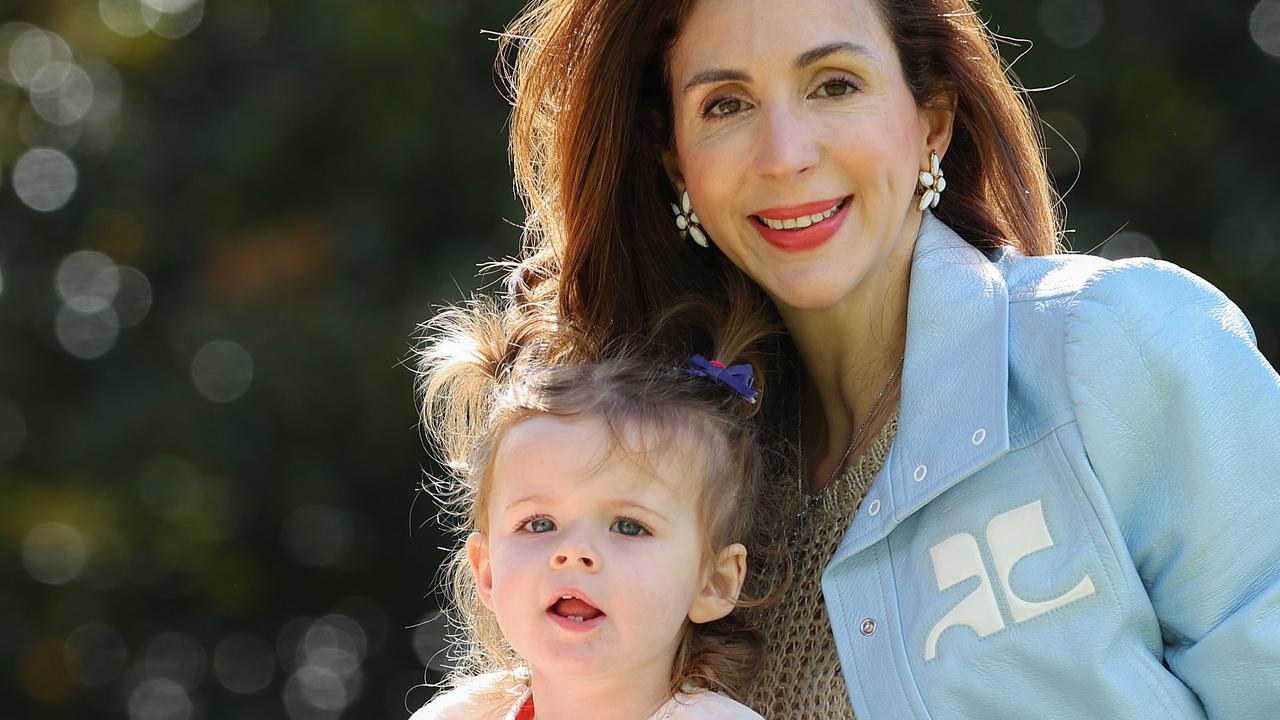Health regulator asks Monash IVF for more details on baby bungle, birth parents hire lawyers
Legal experts say the IVF scandal that saw a woman give birth to a stranger’s baby through Monash IVF could set a precedent for custody battles, with the biological parents potentially having no legal rights to their child.

Fertility
Don't miss out on the headlines from Fertility. Followed categories will be added to My News.
The biological parents of a baby born by a stranger in an unprecedented IVF mix-up may have no legal rights to the child.
Legal experts say the Australian-first scandal could set a precedent for custody battles and the parents of the embryo may have no rights under federal or state legislation to the child, born to another woman.
The Herald Sun on Thursday revealed the Brisbane woman had given birth to a stranger’s baby after Melbourne-based fertility giant Monash IVF impregnated her with another couple’s embryo in 2023.
The Victorian health regulator on Friday evening confirmed it had asked Monash IVF for more details about the mix-up.
The shocking baby bungle was only discovered when the woman and her partner, who are now raising a toddler, asked to transfer their remaining embryos to another IVF provider in February this year.
It is believed to be the first time in Australia that a baby has been born after the wrong embryo was transferred, with Monash IVF blaming “human error” at its Brisbane clinic.
The Saturday Herald Sun understands the birth parents have hired lawyers to assess their legal options.
Monash IVF suffered an estimated $150m hit on Friday as the company’s share price collapsed by 35 per cent after the scandal was revealed by this masthead.
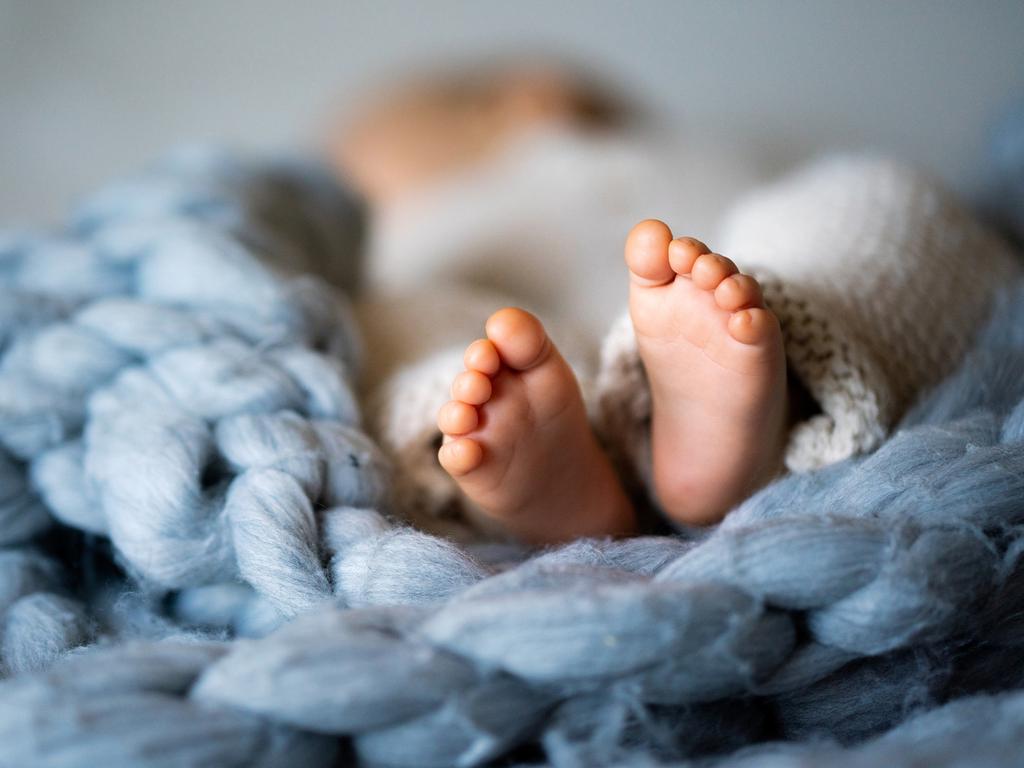
Meanwhile, experts debated the laws defining the parents of donor-conceived children, which presume that the birth parents are the legal parents.
Melbourne Law School health and medical law studies co-director Ian Freckelton KC said he did not believe the biological parents would be entitled to pursue custody under Commonwealth and Queensland state law.
“They wouldn’t,” Professor Freckelton said.
“Under … the Family Law Act, it is provided that when a child is born as a result of carrying out an artificial conception procedure, the child is biologically the child of the woman who carries it and of the husband if she has one.”
He said the biological parents could only gain custody through the normal adoption process, which “depend upon the preparedness of the parents who have given birth to a child to agree to surrender a child for that purpose”.
He added that the biological parents could “conceivably” apply for visitation rights.
“But it would be difficult because they don’t have any formal status,” he said.
However, he said the child would be entitled to request identifying information about their donor/s when they turn 16, if they were yet to find out.
But University of Sydney Health Law deputy director Dr Christopher Rudge said the presumption that birth parents were a donor-conceived child’s legal parents was subject to “parents having consented to the procedure”.
“In short, I think the purpose of the law is to ensure that children who are born via an IVF procedure are not subject to parental claims from donors,” he said.
“But this isn’t an ordinary IVF procedure, so I don’t think that the law’s purpose would be just the classic application of the law.”
He said the court would have “novel issues” to consider on how consent was defined, if the legal action was launched, which could set a precedent for such cases.
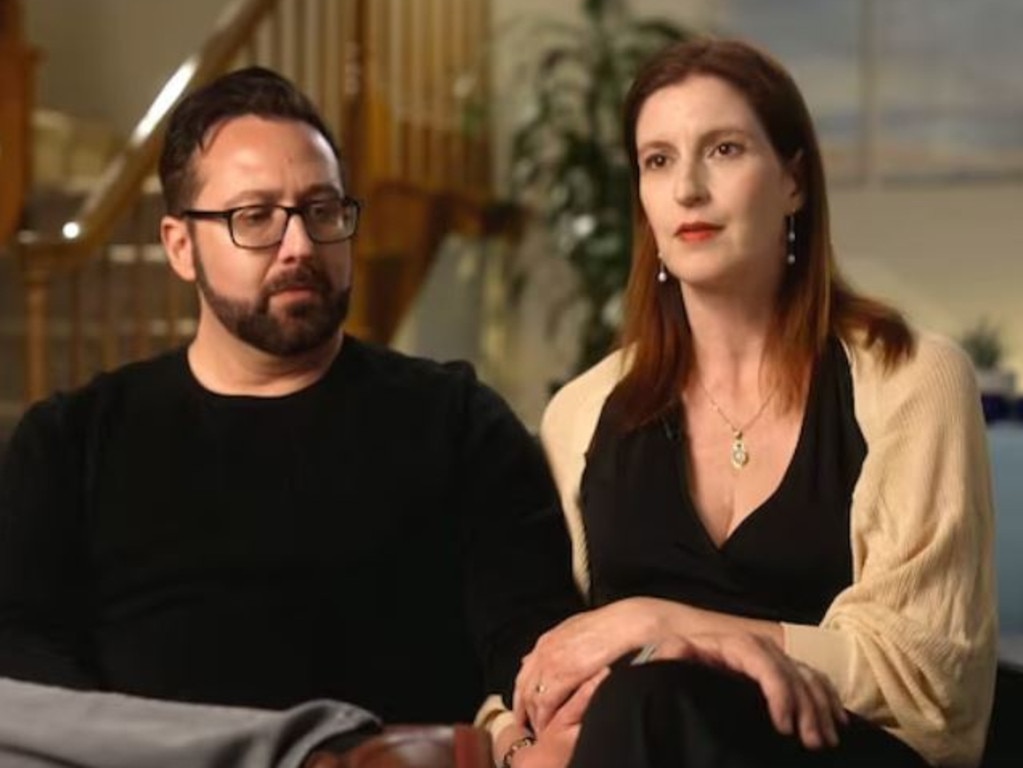
Federal Health Minister Mark Butler on Friday vowed to put IVF regulation “on the agenda” if re-elected, saying the incident “should never have happened”.
“The Queensland government, as the regulators, have said they will ensure any risks are identified,” he said.
“At the next Health Minister meeting, if re-elected, I will make sure that the regulation of IVF is on the agenda.”
A Victorian health department spokeswoman said it has asked Monash IVF for more information about its operations and “will work with them to reinforce Victoria’s strict safeguards and ensure any risks are identified and mitigated”.
A Victorian government spokeswoman said what happened in Queensland was “absolutely horrifying”.
“It is our strong expectation that the Queensland regulator is investigating this incident and will share its findings with Victoria,” she said.
But Queensland Health has revealed it will not investigate the case, as it occurred before its new IVF regulation laws were introduced in September last year.
“We welcome Monash IVF’s decision to launch an independent investigation and will await the outcomes of it before determining if any further action is required,” a spokeswoman said.
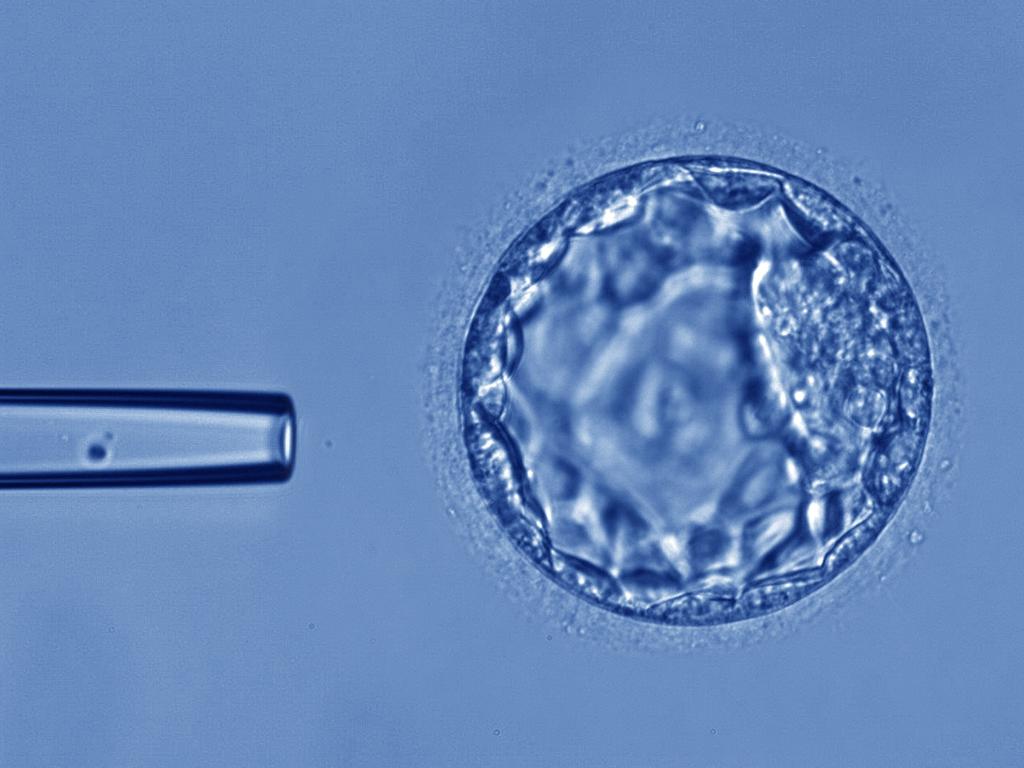
This is the latest scandal to hit Monash IVF after it last year agreed to pay $56m to hundreds of heartbroken families whose healthy embryos may have been destroyed during bungled genetic screening tests.
The class action, the largest against an IVF provider, involved more than 700 patients.
The settlement was to be paid out in four sums, with the final $21m to be paid by July this year, according to the proposed settlement approved by the Supreme Court.
The fertility giant copped another financial hit on Friday, with the share price plummeting from $1.08 to 0.69c and the market cap dropping to $265m.
The scandal has raised questions about the regulation of the lucrative sector, with the industry’s own body calling for greater oversight last year.
A review, commissioned by the Fertility Society of Australia and New Zealand last year, said Australia’s industry was safe but national, consistent regulations were needed.
No. 1 Fertility founder and medical director Dr Lynn Burmeister said her clinic electronically tracked the movement of every gamete and embryo during the process.
“In addition to our highly trained staff manually double witnessing procedures, we utilise the industry leading ‘RI Witness’ electronic witnessing system for every gamete and embryo movement in our laboratories, providing extra security for our team and peace of mind for our patients,” she said.
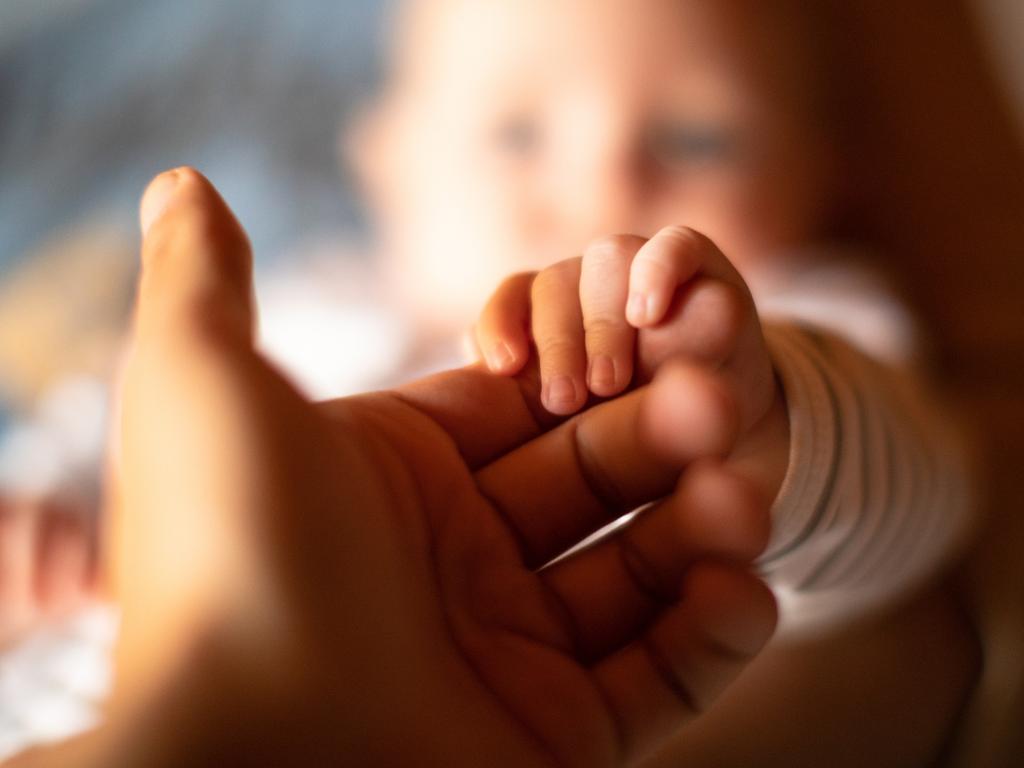
Shine Lawyers Queensland medical negligence practice leader Frances Bertam has been working on several cases involving Queensland IVF clinics.
She said, while this was the worst case she had ever seen, the sector had long-term issues and she was not surprised that a woman had given birth to another patient’s biological child.
“For me, it wasn’t a surprise that it happened,” she said.
“I have been investigating the IVF industry … and we have a number of clients who have had some fairly significant issues.”
She said she was investigating the births of children where clinics had failed to follow, or even have, proper processes and procedures.
“I think there is a bit of a theme,” she said.
Ms Bertam said we “absolutely need to do more” to regulate the IVF industry and until Queensland’s new laws in September 2024, local clinics were left to “to basically manage themselves and implement their own procedures and policies”.
Queensland introduced the new laws after a major investigation identified “significant systemic issues” relating to assisted reproductive technology (ART) services.
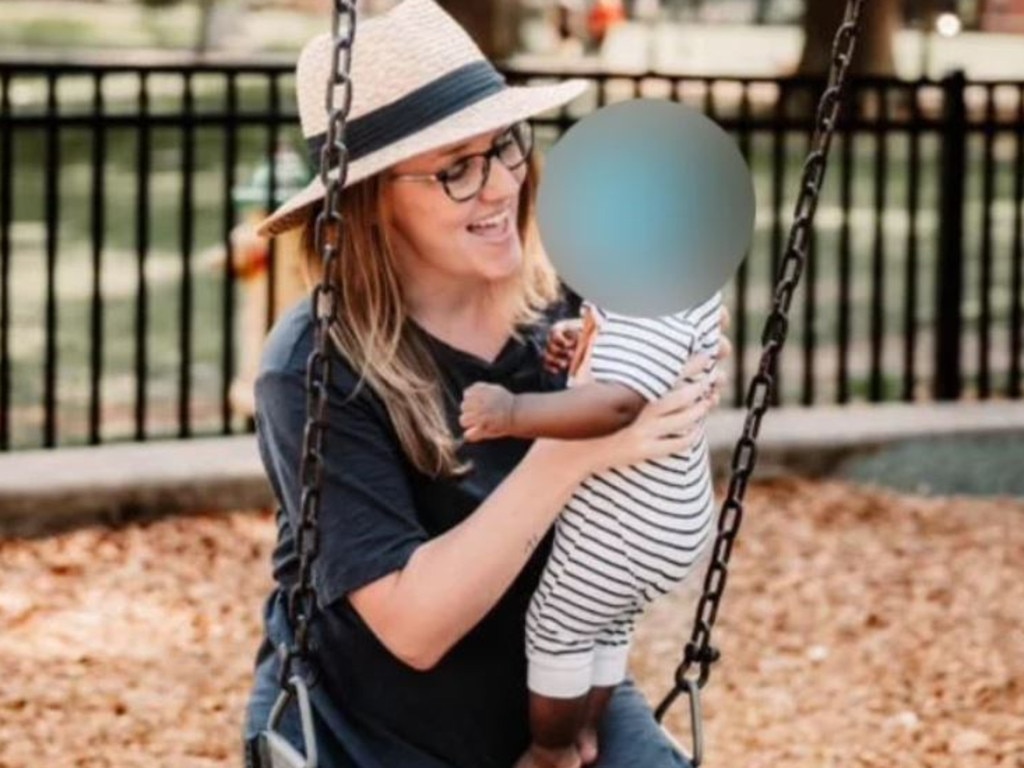
But Genea Fertility Melbourne medical director and Royal Women’s Hospital consultant obstetrician Dr Alex Polyakov said this case was an “exceptionally rare event on a global scale”.
“IVF laboratories and clinics operate within some of the most tightly regulated, meticulously audited environments in all of medicine,” he said.
“While no system is entirely immune to human error, it is important to emphasise that every conceivable precaution is taken to minimise this risk.
“Based on the available information, this event is not reflective of a systemic failure, either within the specific clinic involved or across the broader IVF industry.”
When asked if Victorian cases would now be reviewed, a Monash IVF spokeswoman said it conducts regular audits and was “confident that this is an isolated incident”.
“Monash IVF conducts regular compliance audits across its sites … so that risks are identified and mitigated,” she said.
“We are confident that this is an isolated incident and we will do everything we can to help ensure it never happens again.
“We are reinforcing all our safeguards across our clinics.”
It has commissioned barrister Fiona McLeod SC to conduct an independent investigation.
Queensland Health Minister Tim Nicholls labelled the major IVF bungle a “dreadful situation”.
“The two families, of course, will have to come to a sense of where they want it to go in the best interests of the child,” Mr Nicholls said.
“What Queensland Health are doing is monitoring what Monash’s response is, and we stand ready to provide whatever support we can to the families to resolve this terrible situation.”
Mr Nicholls said there were “complexities around the situation”.
“As a regulator in the future, we will be ensuring that these organizations do everything they can to make sure this terrible type of event doesn’t occur in the future.”
“These matters involve a number of jurisdictions. As I understand, they involve the federal jurisdiction. When it comes to the family court, who have authority in these areas, the state is the regulator has some control over those areas. And as I say, I would expect that Monash will do everything within its power to resolve this matter.”
“And that’s the really difficult part, where families involved, no matter what the law says, people come down to what the families involved need to determine.”
Monash IVF achieved the world’s first IVF pregnancy in 1973.
American woman Krystena Murray from Georgia was shocked when she gave both to an African-American baby in December 2023 in a similar IVF bungle.
The baby’s biological parents sued her for custody, forcing her to give up the only son she had ever known after five months.
Years earlier, two couples from Los Angeles were forced to swap their four-month-old babies after their IVF clinic confirmed the embryos had been accidentally switched prior to implantation.
But laws relating to donor-conceived children differ between Australia and the US.
Originally published as Health regulator asks Monash IVF for more details on baby bungle, birth parents hire lawyers

